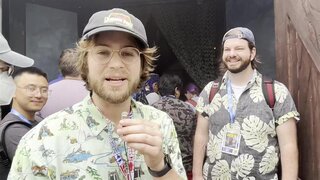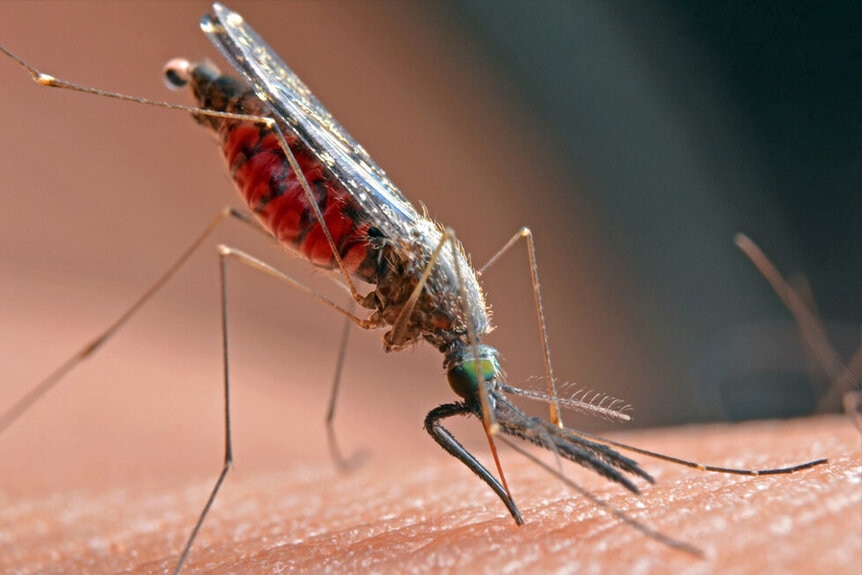Create a free profile to get unlimited access to exclusive videos, sweepstakes, and more!
Fighting Dengue Fever with Genetically Modified Mosquitos
These mosquitoes are carrying a deadly genetic secret.
When Doctors Sattler, Grant, and Malcolm first arrived at Jurassic Park, they were treated to a presentation from Mr. DNA, an animated video host who explained the process by which Jurassic Park scientists create baby dinosaurs. They found partial DNA from the blood of mosquitoes trapped in amber and filled in the gaps by inserting genes from frogs.
Later, drunk on their genetic power, those same scientists used their talents to create genetic monstrosities like the Indominus Rex at Jurassic World. In the real world, scientists are using genetics in subtler and, hopefully, more responsible ways, not to build theme parks but to combat the spread of disease.
Genetically Modified Mosquitoes, Aerial Soldiers in the Fight Against Disease
Mosquitoes might be the key to resurrecting fictional dinosaurs, but they are also the undisputed champions of killing people. John Hammond’s prehistoric creations notwithstanding, mosquitoes are the deadliest animals on the planet by a wide margin. Scientists are fiddling with mosquito DNA to slow the spread of diseases like dengue fever.
So far in 2024, dengue fever has spread more rapidly than normal throughout Brazil. More than 1.4 million cases have been reported in January and February of 2024 alone, more than twice the number during the same period of the previous year. It’s likely that there are far more cases than have been reported. Only about one in four people who become infected will experience any symptoms and those who do will usually recover in about a week, but a small percentage will develop severe illness and die.
For More on DNA:
Remember That Half-Eaten Great White Shark? DNA Evidence Identifies the Killer (Whale)
Woolly Rhino Genome Recovered from Fossilized Hyena Poop
'De-extinction Company' Colossal Biosciences Commits to Resurrecting the Dodo
Dengue impacts about half of the world population and is a leading cause of illness in the impacted areas. Authorities in Brazil are tackling the problem on multiple fronts: vaccine programs are working to directly protect the population while genetically modified mosquitoes are being released to stop the spread at its source. Dengue isn’t spread from person to person, it is only transmitted through mosquito bites. If you get rid of the mosquitoes, you get rid of the disease.
The modified mosquitoes come from the biotech company Oxitec, and they’ve been specially customized to reduce wild mosquito populations. The gene-edited male mosquitoes, known as “friendlies,” hatch and live out their lives like any other mosquito. They fly around looking for food, finding mates, and making baby mosquitoes. The only difference is their offspring don’t make proteins correctly. The gene modification causes their cells to overproduce certain proteins, inhibiting their ability to make other proteins, their bodies break down, and they die before they reach adulthood.
The modification can be adjusted to impact all offspring indiscriminately or to target only female offspring. In the latter case, the female offspring die while the males survive to mate with other females and repeat the process. Because only female mosquitoes bite and spread disease, this allows scientists to reduce spread of disease while keeping the friendlies in action as long as possible.
This isn’t the first time Oxitec’s mosquitoes have seen action. Thousands of modified mosquitoes were released in the Florida Keys back in 2021 as part of a pilot program. That initial phase was successful and the project continued for two more seasons, ending in 2023. Monitoring of the wild population continues into 2024. In those tests, mosquito populations were roughly 90% lower than in untreated areas.
How the friendlies impact the ongoing fight against dengue fever remains to be seen. Hopefully, no one gets out of their proverbial cages.
Add Jurassic Park to your digital video collection, available now from Universal Pictures.































